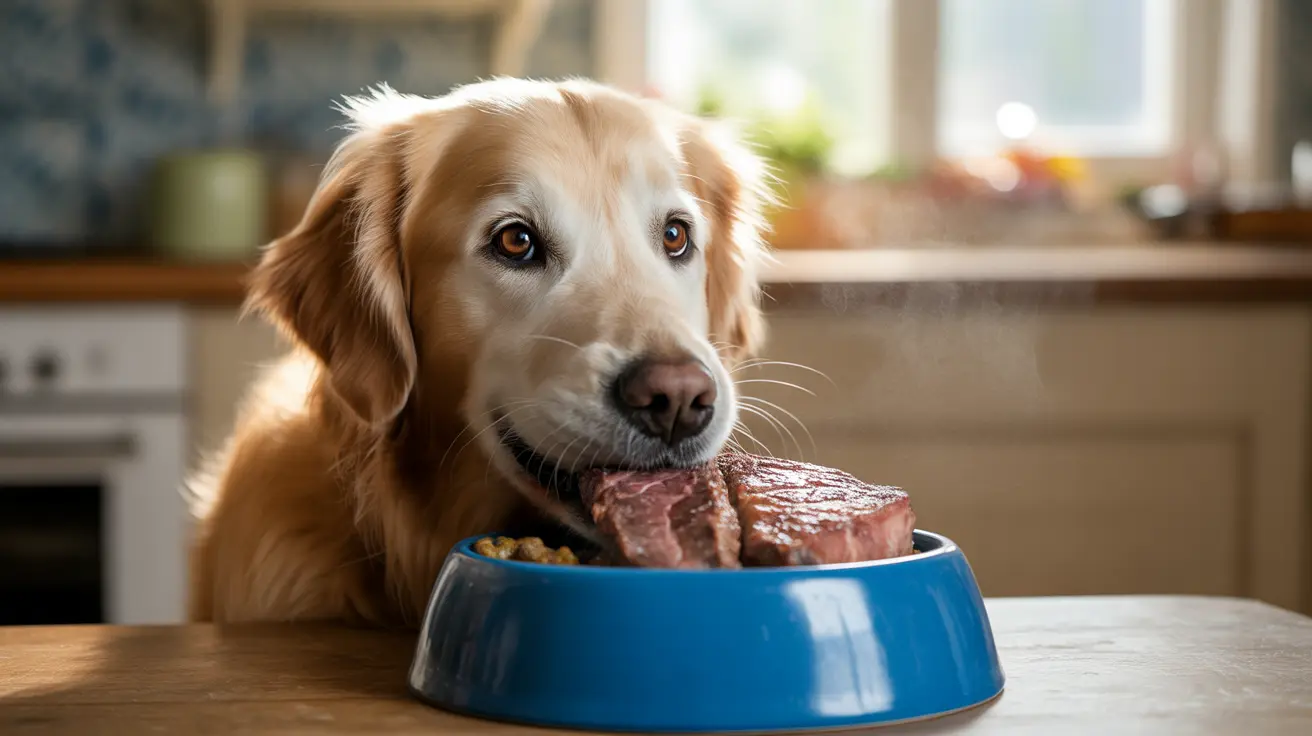Many pet owners wonder about incorporating cooked meat into their dog's daily diet. While dogs are naturally carnivorous animals, the question of whether they can safely consume cooked meat every day requires careful consideration of nutritional balance, portion sizes, and preparation methods.
Understanding how to properly include cooked meat in your dog's diet is crucial for their health and well-being. Let's explore the benefits, risks, and best practices for feeding your dog cooked meat as part of their regular meals.
The Benefits of Feeding Cooked Meat to Dogs
Cooked meat can be an excellent protein source for dogs, providing essential amino acids necessary for muscle maintenance, immune function, and overall health. High-quality meat proteins are typically more digestible than plant-based proteins, making them an efficient nutrient source for your canine companion.
When prepared properly, cooked meat offers several advantages:
- Reduced risk of bacterial contamination compared to raw meat
- Higher digestibility than some commercial dog foods
- Better control over ingredient quality and sourcing
- Fewer preservatives and artificial additives
Nutritional Considerations for Daily Meat Consumption
While dogs can safely eat cooked meat daily, it's crucial to understand that meat alone doesn't provide complete nutrition. Dogs require a balanced diet that includes:
- Proteins (from meat and other sources)
- Carbohydrates for energy
- Essential fatty acids
- Vitamins and minerals
- Fiber for digestive health
Studies show that approximately 95% of homemade dog diets lack essential nutrients when not properly balanced. This highlights the importance of complementing meat with other nutritious ingredients.
Safe Meat Preparation Guidelines
When preparing cooked meat for your dog's daily meals, follow these essential guidelines:
- Remove excess fat before cooking
- Avoid seasoning with salt, spices, or oils
- Cook thoroughly to kill harmful bacteria
- Allow meat to cool completely before serving
- Store properly in refrigerated containers
Recommended Meat Types and Portions
The best types of meat for daily dog consumption include:
- Lean beef
- Chicken (without bones)
- Turkey
- Lean pork
- Fish (deboned)
Portion sizes should typically constitute 40-50% of your dog's total daily food intake, with the remainder coming from dog-safe vegetables and other nutritious ingredients.
Potential Risks and Considerations
While feeding cooked meat daily can be safe, there are several important considerations:
- Cost implications of daily meat-based meals
- Time commitment for proper preparation
- Risk of nutritional imbalances without proper planning
- Potential for digestive issues if introduced too quickly
Frequently Asked Questions
Can dogs eat cooked meat every day as part of their regular diet?
Yes, dogs can eat cooked meat daily when it's part of a balanced diet. However, meat alone shouldn't comprise their entire diet, as dogs need additional nutrients from other food sources to maintain optimal health.
How do I ensure my homemade dog food is nutritionally balanced and safe for my pet?
Consult with a veterinary nutritionist to create a balanced meal plan. Include a variety of proteins, vegetables, and appropriate supplements to meet all nutritional requirements. Regular vet check-ups can help monitor your dog's health on a homemade diet.
What are the risks of feeding raw meat to dogs, and how can I minimize these risks?
Raw meat can contain harmful bacteria and parasites. If choosing raw feeding, source meat from reputable suppliers, practice strict food safety measures, and consider partially cooking the meat to reduce bacterial risks.
What are the best meats to include in homemade dog food, and how should they be prepared?
Lean meats like chicken, turkey, beef, and fish are excellent choices. Remove excess fat, avoid seasonings, and cook thoroughly. Cut meat into appropriate-sized pieces and ensure it's cooled before serving.
How can I transition my dog from commercial dog food to homemade dog food without causing digestive issues?
Gradually transition over 7-10 days by mixing increasing amounts of homemade food with decreasing amounts of commercial food. Monitor your dog's response and adjust the transition period as needed.
Remember to always consult with your veterinarian before making significant changes to your dog's diet, especially when incorporating daily meat servings. This ensures your pet receives proper nutrition while enjoying the benefits of home-cooked meals.






